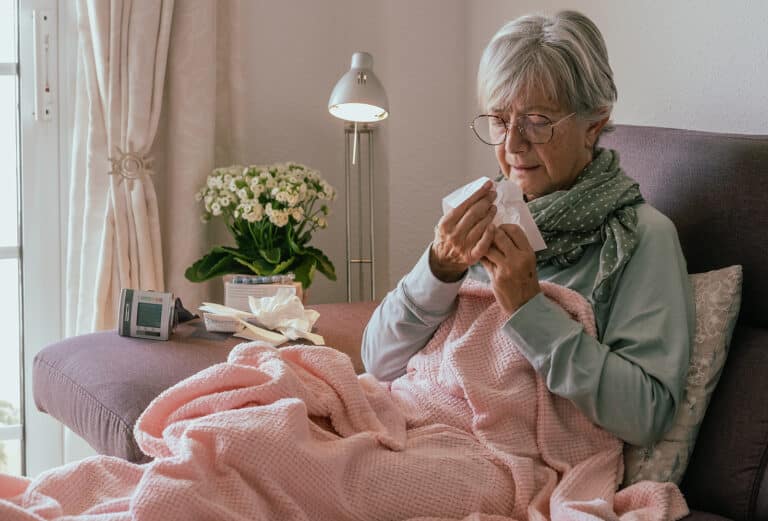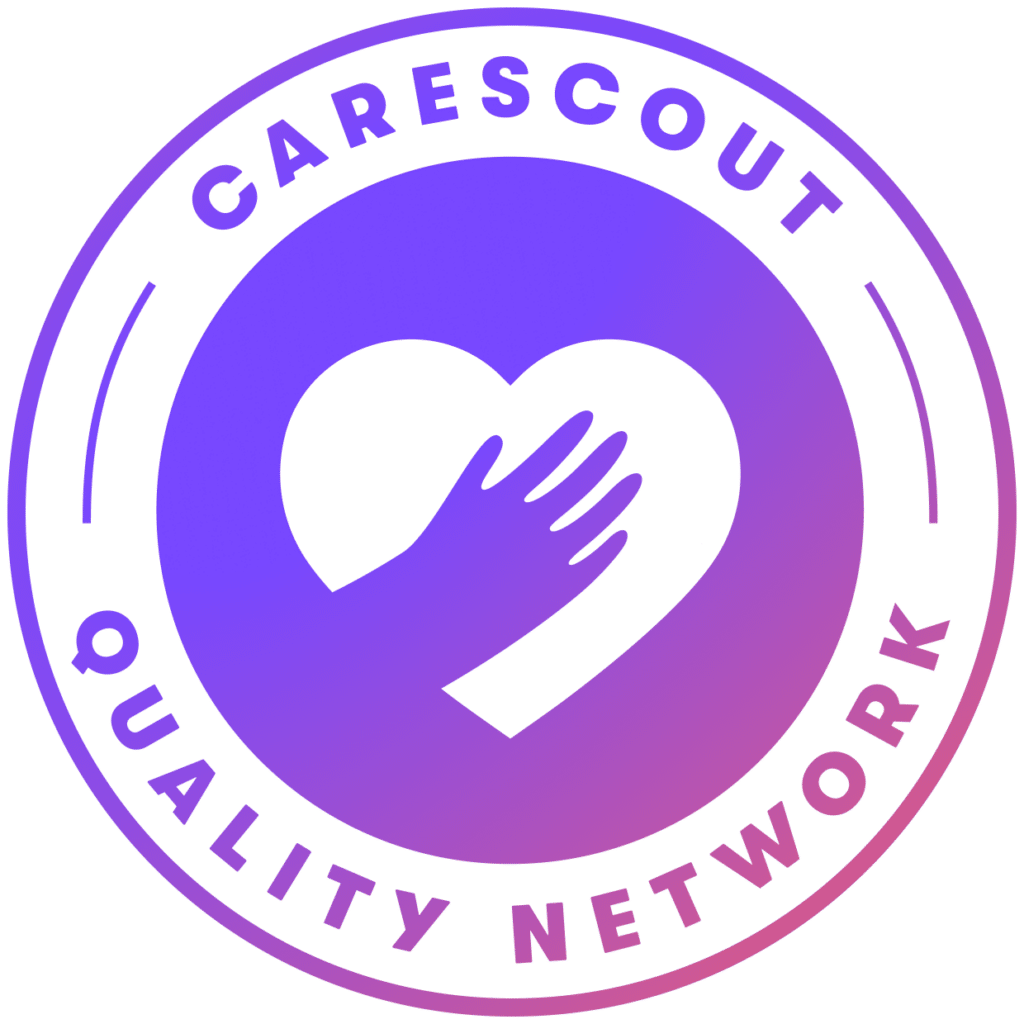Seasonal allergies and the common cold share many symptoms, making it difficult to distinguish between them—especially for seniors who may experience both differently than younger adults. Understanding these differences is essential for proper management and relief. With the help of home care providers, seniors can get the support they need to help them manage these issues and feel better in no time.
Key Differences Between Allergies and Colds
Home care providers can help seniors understand the differences between allergies and colds so they can take better care of themselves. Some of the noted differences include the following:
Onset and Duration:
Allergies typically strike suddenly when exposed to triggers and can persist for weeks or months as long as allergens remain present. Colds develop gradually over several days and generally resolve within 7 to 10 days.
Symptom Patterns:
Allergies rarely cause fever or body aches but frequently produce itchy, watery eyes and clear nasal discharge. Colds often bring low-grade fever, body aches, and thicker, yellow or green mucus.
Timing and Seasonality:
Allergies follow predictable patterns tied to specific seasons or environmental exposures. Colds can strike any time but are more common during winter months.
Response to Medication:
Antihistamines typically relieve allergy symptoms but do little for colds. Cold symptoms may respond better to decongestants and anti-inflammatory medications.
Special Considerations for Seniors
Seniors face unique challenges when dealing with these conditions. Understanding the challenges helps them take steps to recover more quickly. When seniors don’t feel well, whether due to colds or allergies, they should be mindful of the following:
- Weakened immune systems make older adults more susceptible to complications from colds
- Medication interactions are more common due to multiple prescriptions
- Chronic conditions like COPD or heart disease can worsen with respiratory symptoms
- Dehydration risks increase with age, particularly during illness
Home Care Management Strategies for Seniors
To help seniors manage seasonal allergies—or prevent them altogether—home care providers can help them create an allergen-free zone by using air purifiers with HEPA filters in bedrooms and keeping windows closed during high pollen days. They can also encourage seniors to talk with their healthcare providers about non-sedating antihistamines that won’t interact with other medications.
Also, some seniors may need to avoid certain decongestants due to blood pressure concerns. Reviewing medications and needs with their medical team can ensure they stay safe.
Other ways to manage allergies include the following:
- Track Symptoms: Seniors should keep a simple journal, noting when symptoms worsen to identify specific triggers.
- Shower Before Bed: Showering removes pollen from hair and skin to prevent nighttime symptom flare-ups.
When it comes to colds, seniors should be careful when socializing during the cold season, as they are more susceptible to germs. Additionally, they can be reminded to practice good hygiene to help keep viruses at bay. If they do get ill, home care can suggest the following strategies for cold management:
- Focus on Hydration: Warm liquids like herbal tea or broth can soothe and hydrate simultaneously.
- Rest Appropriately: Seniors need additional recovery time, so adequate rest is essential.
- Consider Humidity: Using humidifiers can ease respiratory symptoms, especially in dry climates or heated homes.
- Watch for Complications: Home care providers can help seniors monitor for signs of infection spreading to the chest, sinuses, or ears, which might require medical attention.
With thoughtful management strategies tailored to their specific needs, home care can help seniors navigate both seasonal allergies and common colds with greater comfort and minimal disruption to their daily lives.
If you or an aging loved one is considering Home Care in Rock Hill, SC, please contact the caring staff at Avodah Home Care. Call (877) 4-AVODAH
Avodah Home Care is a Trusted Home Care Agency serving Abbeville, Aiken, Anderson, Barnwell, Calhoun County, Chesterfield County, Darlington, Dillon, Edgefield, Batesburg-Leesville, Florence, Greenville, Greenwood, Columbia, Lexington, Camden, Blythewood, Winnsboro, Orangeburg, Sumter, Gaston, Hopkins, Bishopville and surrounding areas.
Sources:
- https://www.austinallergist.com/understanding-allergies-in-seniors-a-comprehensive-guide-for-55-part-1/
- https://www.ncoa.org/article/a-common-sense-guide-to-the-common-cold-for-older-adults/
- https://www.ioaging.org/medical-concerns/seasonal-allergies-in-the-elderly-tips-to-enjoy-the-season-in-the-san-francisco-bay-area/
- https://www.healthline.com/health/flu/seniors-guide-to-staying-healthy
Our team includes registered nurses, licensed practical nurses, certified nursing assistants, home health aides, and other healthcare professionals, all of whom have years of experience in the home care industry. We work together to provide comprehensive care that encompasses both medical and non-medical services, helping our clients maintain their independence and live with dignity in their own homes.
With our decades of experience, we have developed a deep understanding of the home care industry and the best practices for providing high-quality care. We are dedicated to staying up-to-date on the latest advances in care delivery, and we are committed to providing our clients with the most effective, evidence-based care.
At our core, our team is driven by a deep commitment to our clients and their families. We know that home care can be a difficult and challenging journey, and we are here to provide the support, guidance, and care that our clients need to thrive. Our team members are not only experienced professionals, but also compassionate and caring individuals who are dedicated to making a difference in the lives of our clients.
- Allergies vs. Colds: Helping Seniors Understand and Manage Both - May 6, 2025
- Safety Aids That Can Help Seniors Stay Safer in the Bathroom - April 28, 2025
- How Companion Care Can Help Your Senior Parent Stay Healthy At Home - April 7, 2025




